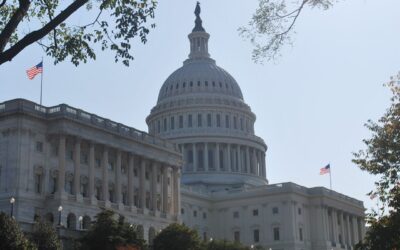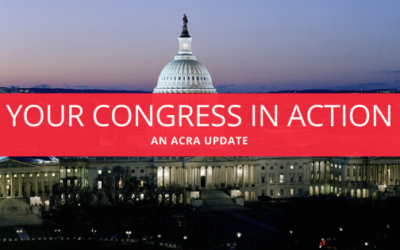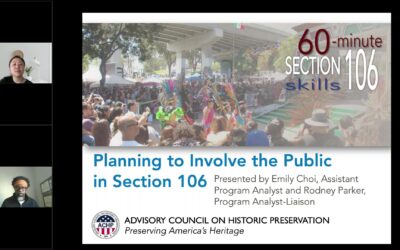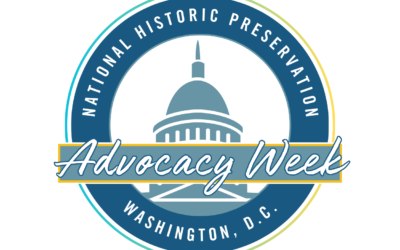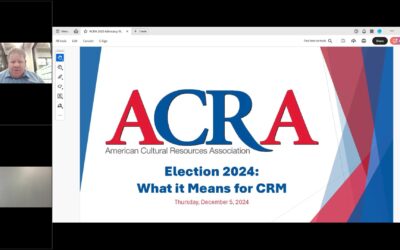ACRAsphere
Government Shutdowns: What You Need to Know
With government funding set to expire at the end of the day Friday, there is the possibility that federal agencies will need to cease operations if Congress and the White House fail to pass a spending bill to keep them open. Once a rare occurrence, government...
Department of Government Efficiency (DOGE): Outlook and Analysis
This post is authored by Andrew Goldberg, ACRA Chief Lobbyist. On November 12, President-elect Trump announced the formation of a Department of Government Efficiency, or “DOGE,” that would be tasked with delivering a “smaller Government, with more efficiency and less...
ACRA Comments on Revised Proposed ACHP Program Comment
ACRA has provided comments to the Advisory Council on Historic Preservation (ACHP) on their revised program comment on housing and transportation. The Program Comment draft followed the Council’s release last summer of its controversial Proposed Program Comment on...
Your Congress in Action: December 16, 2024
As 2024 comes to a close, it’s time to take a look back at the biggest federal policy developments that impact CRM. Republicans Win Big on Election Day Not surprisingly, the 2024 election was the year’s biggest news. Former President Donald Trump defeated Vice...
Now on Demand: Planning to Involve the Public in Section 106
If you missed today's webinar on involving the public in section 106, it is now available on demand! The views of the public are essential to informed decision making in the Section 106 process. The level and type of public involvement in a case will vary depending...
REGISTRATION OPEN: 2025 Preservation Advocacy Week – March 3-6, 2025
Register NOW: 2025 Preservation Advocacy Week March 3-6, 2025 Registration is now open for 2025 National Historic Preservation Advocacy Week! Join your colleagues and hear from a variety of preservation and policy professionals on issues affecting historic...
Now on Demand: Election 2024: What it Means for CRM
If you missed yesterday’s webinar on how the 2024 elections may affect CRM, it is now available on demand! This webinar explores the potential changes to the legislative and regulatory environments, how your firm may be affected, and ways that ACRA will continue...
Deadline THIS FRIDAY: 2025 Webinar Proposals
Do you have a great idea for a webinar for CRM professionals? Do you have a presentation you give regularly that you think would be great for a larger audience? Proposals for the 2025 ACRA Webinars are due THIS Friday, December 6! This Request for Proposals invites...
Your Congress in Action: December 2, 2024
As the calendar turns to December and Mariah Carey prepares her annual conquest of our brains, lawmakers are rushing to finish their end-of-year to-do list. Most critically, Congress needs to avoid a government shutdown on Dec, 20, when the current stop-gap funding...
2025 CRM Expo Registration
The 2025 CRM Expo will be held on Saturday April 26, 2025, between noon and 4:00 p.m. as part of the Society for American Archaeology (SAA) Annual Meeting in Denver. The fee to participate is $250. Registration is now being completed through ACRA’s system, meaning...

